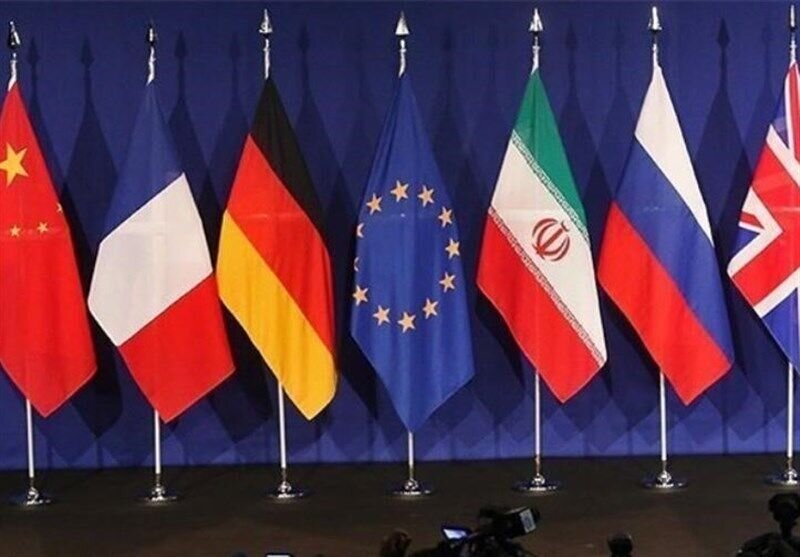Things to do in Washington when the JCPOA is dead

TEHRAN – The United States is reportedly planning to get the UN nuclear watchdog’s Board of Governors to adopt a resolution criticizing Iran for reducing nuclear commitments with a 2015 nuclear deal between Tehran and major world powers.
But doing so could spell the end of the nuclear deal and dampen hopes for rekindling diplomacy with Iran under President Joe Biden, particularly now that Iran is being punished for continuing cooperation with the International Atomic Energy Agency (IAEA).
The IAEA Board of Governors has received a draft resolution from the United States censuring Iran for reducing nuclear commitments in response to the unilateral withdrawal of the U.S. from the 2015 nuclear deal, formally known as the Joint Comprehensive Plan of Action (JCPOA).
While the IAEA continues to carry out inspections in Iran, U.S. diplomats circulated a document on Thursday which lists Washington’s grievances and orders Iran to fully cooperate with inspectors, according to a Bloomberg report.
The proposed resolution would “underscore strong concern at the IAEA’s findings” and “express the board’s deepening concern with respect to Iran’s cooperation,” Bloomberg said, adding that this resolution would suggest that Iran could be providing incomplete information on its nuclear activities, something that has potentially serious consequences, including another referral to the United Nations Security Council.
The U.S.-led resolution comes less than a week after Iran and the IAEA arrived at an understanding on how to continue cooperation in light of the implementation of an Iranian Parliament’s nuclear law that obligates the government to stop implementing the Additional Protocol to the nuclear Non-Proliferation Treaty (NPT).
The nuclear law, officially called “Strategic Action to Lift Sanctions and Protect the Nation’s Rights,” stipulates that if the remaining parties to the JCPOA – Germany, France, China, Russia and the UK- failed to facilitate Iran’s oil exports and the return of Iranian oil revenues in two months, the Iranian government would be obligated to stop inspections beyond the IAEA safeguards, including the voluntary implementation of the Additional Protocol, which allows unannounced and intensive inspections of nuclear sites.
The IAEA chief Rafael Grossi traveled to Iran a few days before the nuclear law goes into effect in a bid to find a middle ground on nuclear inspections. In a gesture of goodwill, Iran struck a deal with the IAEA on how to continue cooperation with the UN nuclear watchdog.
Instead of rewarding Iran, the West responded by further ramping up diplomatic pressure on Iran. Of course, the U.S.-led resolution is not adopted yet. But there is no sign that the U.S. is going to withdraw its resolution.
If Washington goes forward with its resolution, then it will throw a monkey wrench into its own efforts to revive the JCPOA because Iran has made it clear that it considers such a move as a continuation of the Trump administration’s “maximum pressure” against Iran.
“These hackneyed behaviors are a continuation of Trump’s maximum pressure strategy and unveil the contentious intention of the new U.S. administration against Iran,” an Iranian official told Nour News, a website close to Iran’s top security body after Western news organizations reported on the U.S. resolution.
Iran also sent a letter to the IAEA warning it of the consequences of adopting a resolution against Iran.
In the letter, Iran threatened to end the deal with the IAEA, if the Agency’s board of governors endorses the U.S.-led resolution, according to a Reuters report.
“Iran perceives this move as destructive and considers it as an end to the Joint Understanding of 21 February 2021 between the Agency and the Islamic Republic of Iran,” Iran purportedly said in its letter to the IAEA, according to Reuters.
Ali Akbar Salehi, head of the Atomic Energy Organization of Iran (AEOI), confirmed on Sunday that Iran had sent a letter to the IAEA.
He warned against adopting a resolution against Iran, saying that Tehran would give a proper response to such a move.
“If the International Atomic Energy Agency’s board of governors issues a resolution against our country due to its cessation of [the implementation of] the Additional Protocol, Iran will give a proper response. A letter in this regard has been sent,” Salehi told the Islamic Consultative Assembly News Agency (ICANA).
The nuclear chief also said that Iran’s move to halt the implementation of the Additional Protocol was in line with the Parliament’s nuclear law.
The Iranian government implemented this law in a way that strikes a balance between domestic growing calls for reducing cooperation with the IAEA and the Agency’s need for continued cooperation with Iran.
However, the Biden administration seems to be determined to undercut Iran’s efforts to save the JCPOA. By putting forward a resolution against Iran, Washington only implied that it responds to Iran’s goodwill gesture with more pressures and bullying. This has raised alarm bells for some analysts and diplomats.
“IAEA BoG session will start tomorrow. It can predetermine further developments around the Iranian nuclear program, as well as prospects of full restoration of JCPOA. All Governors need to keep this in mind and exercise responsible approach,” Mikhail Ulyanov, Russia’s permanent representative to international organizations in Vienna, said in a tweet on Sunday.
The Biden administration risks destroying the opportunity for a renewed diplomacy between Tehran and Washington by pushing for a resolution that will only complicate the situation around the JCPOA. If the Agency’s board adopts a resolution against Iran only a few days after Iran reached an understanding with the IAEA, then why Iran should continue to cooperate with IAEA. Iran has long tolerated the U.S. non-compliance with the JCPOA, hoping that a new U.S. administration would rejoin the deal. But now Iran has no reason to tolerate the non-compliance of an administration that campaigned on rejoining the JCPOA but reneged on its promise as soon as it took the helm in the White House.
